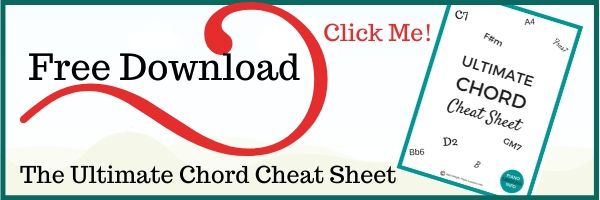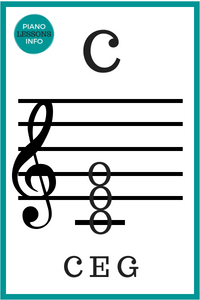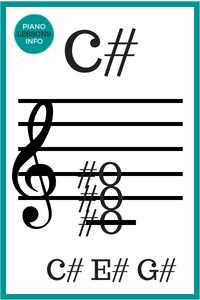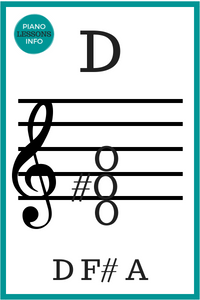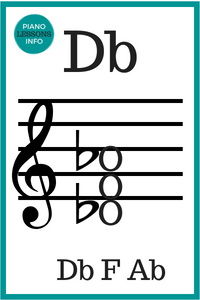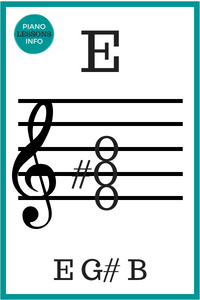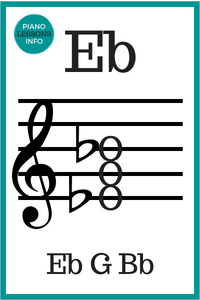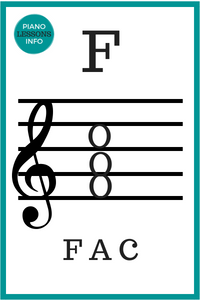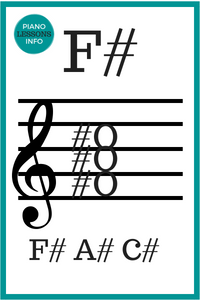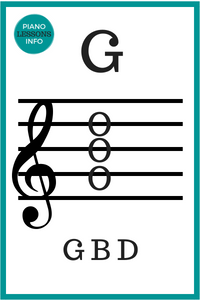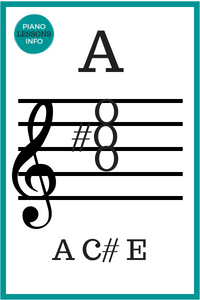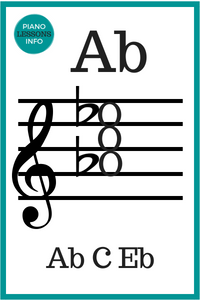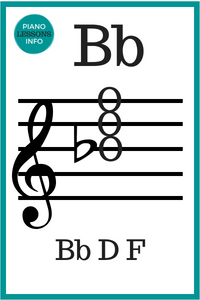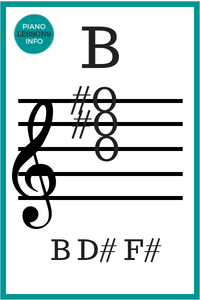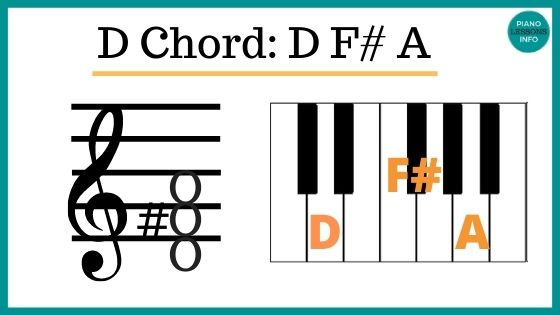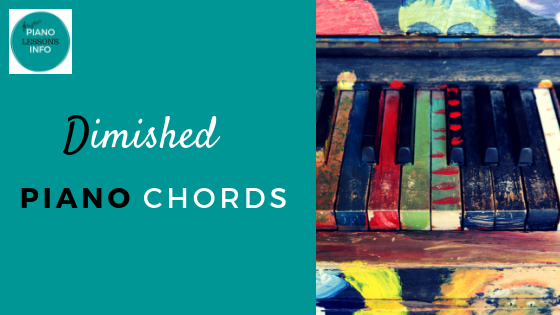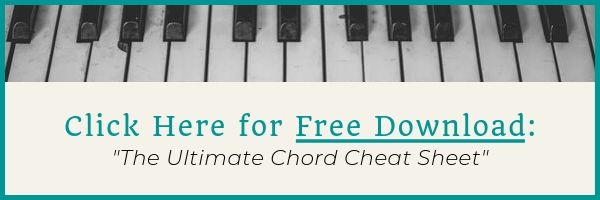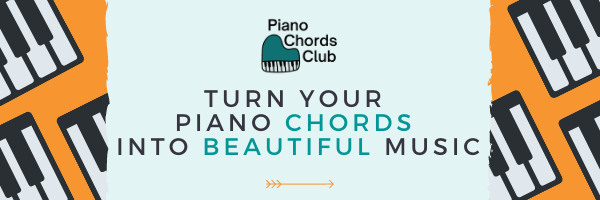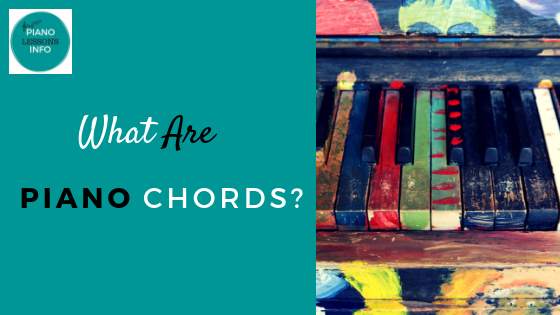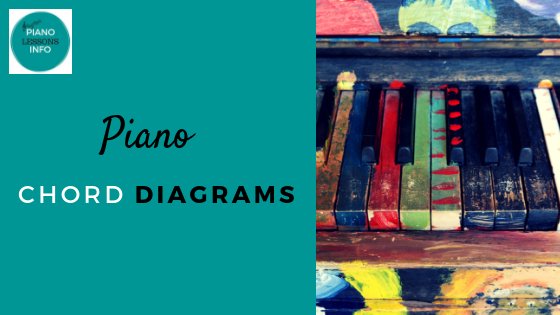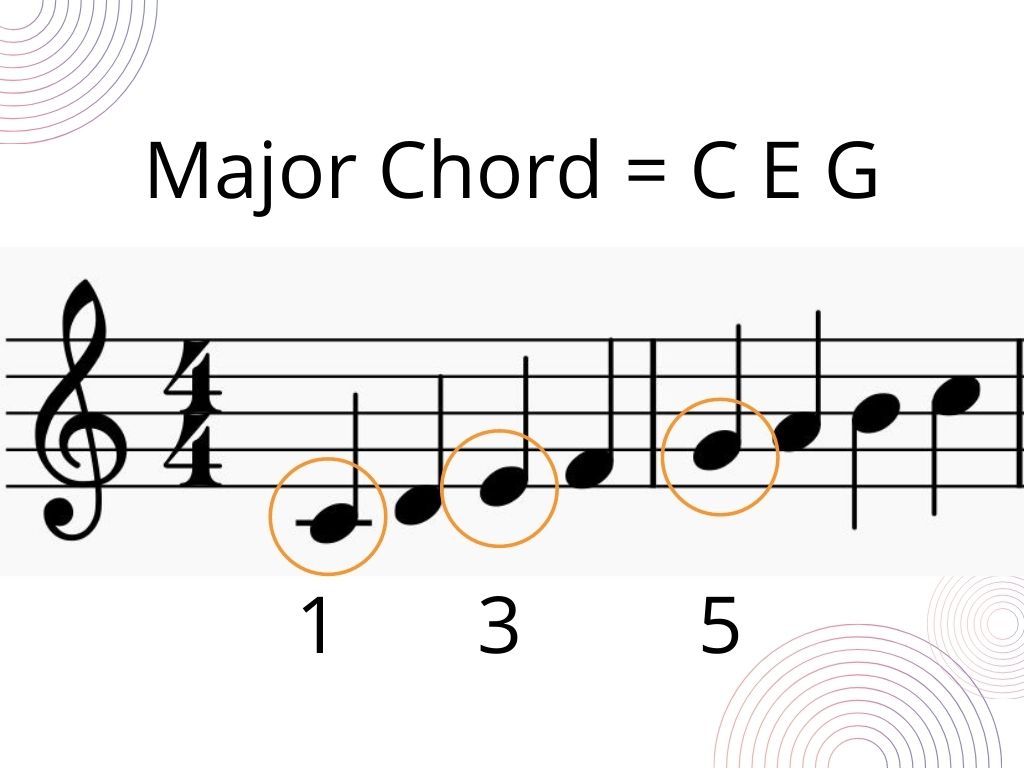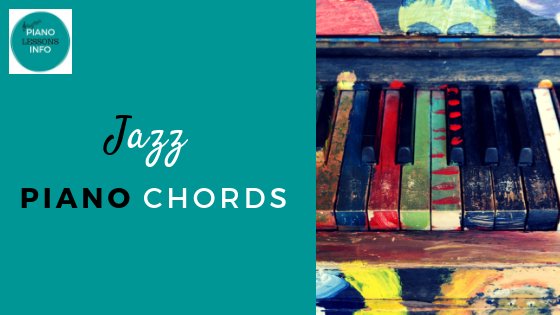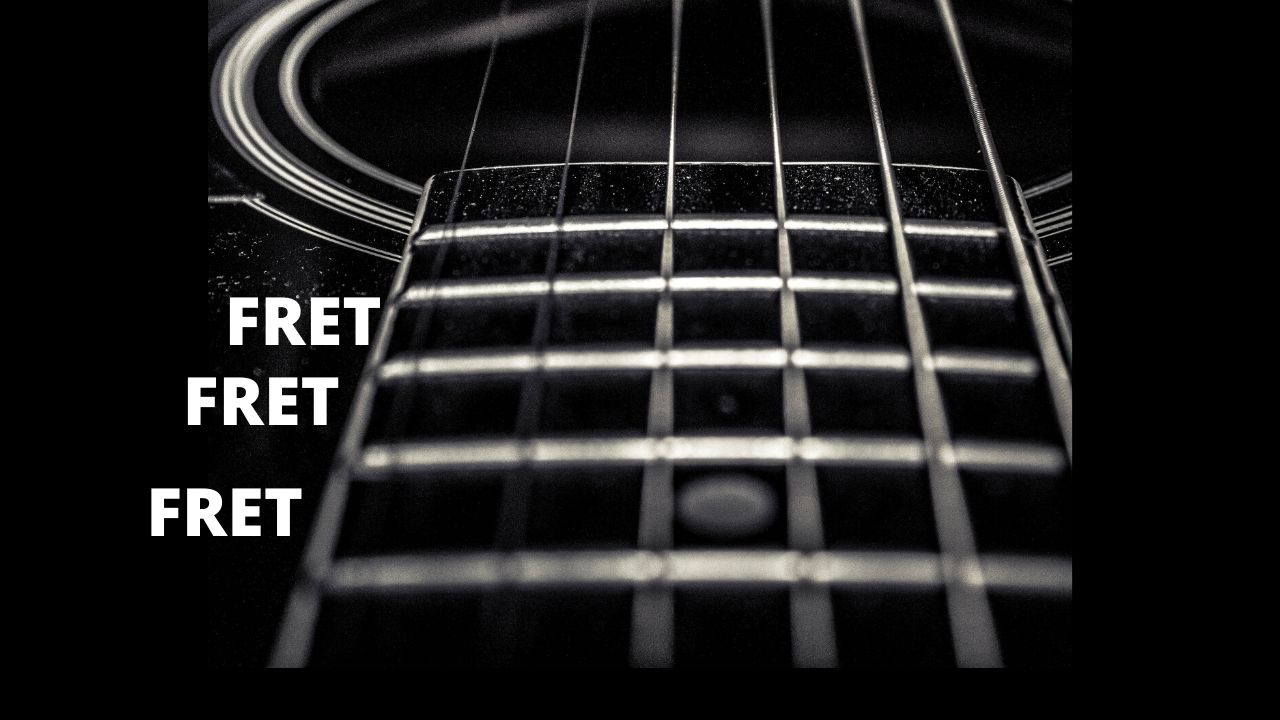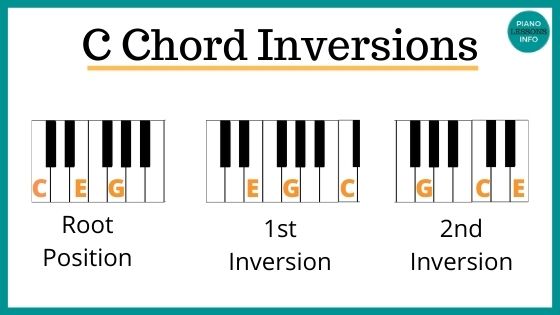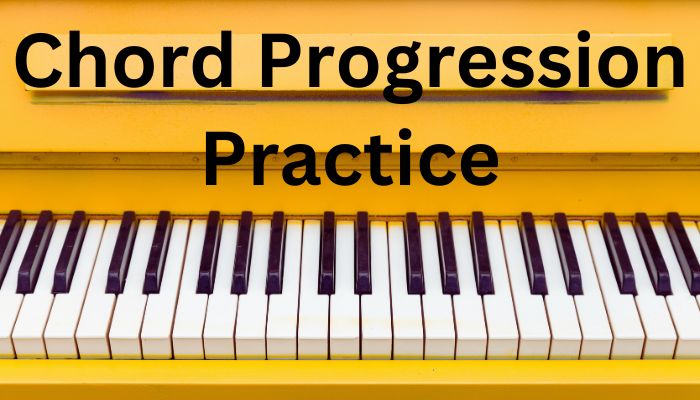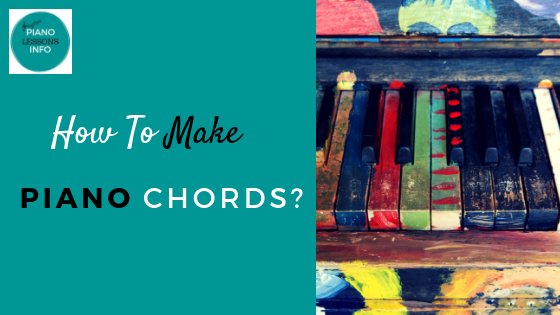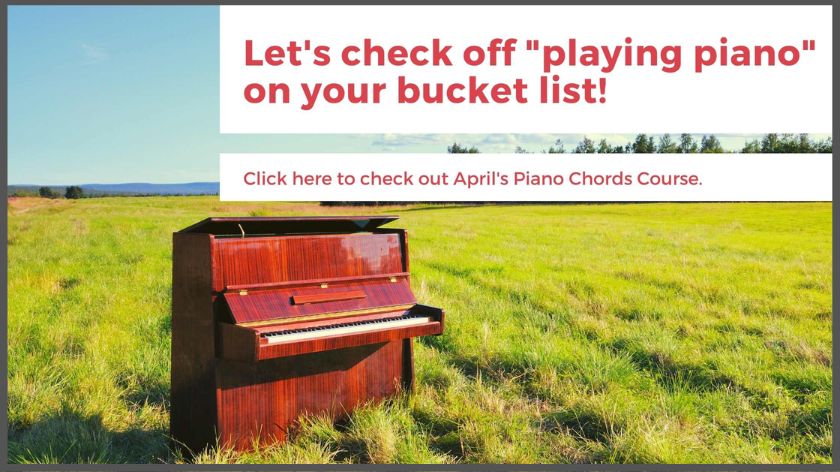What Are the 12 Major Chords?
There are 12 major chords that you can play on the piano - one for each note. To make a major chord, you play the 1st, 3rd, and 5th notes of a major scale together. For example, the C major scale has the notes: C, D, E, F, G, A, B, C. So you use C E G to make the major chord.
Keep in mind that you call one black note by 2 names, like C# and Db. Chords like this have the same notes but are called and written differently. Both ways will be written here.
Go to:
- about major chords
- major chords on the treble clef
- video of how to play the major chords
- chord chart for all major chords
- the major chords on piano keys
- FAQ for major chords
About Major Chords
Major chords are written as just a letter name. They come from major scales and use the 1st, 3rd and 5th notes of the scale with the same name. (You can learn more about this on the chord theory page.)
The chord title for a major chord is just the root note and can include a sharp (#) or a flat (b).
All Major Chords on the Treble Clef
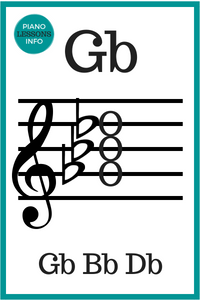 Gb = Gb Bb Db
Gb = Gb Bb DbAs you can see, some of the major chords overlap. They are essentially the same as each other but have different names. You would be play the exact same notes on the piano however.
These chords are:
C# major and Db major.
F# major and Gb major.
You could technically call almost any chord by multiple names, like A# major and Bb major but the chords here are based off of key signatures.
We have the keys of C#, Db, F# and Gb. We don't have a key called A# so that is why you won't find an A# major chord here.
When I explain this to my piano students, some really struggle with the logic of it all. Why have two names? Why not just have one? Why not make it easier?
If this is you, a good thing to learn about is key signatures. They are a foundational aspect to chords, understanding chord names and formulas and the basis for a lot of theory.
How to Play Major Chords - Video Playlist
I have created a play list of how to play all the major chords and you can use that below to learn them. I'd recommend learning every major chord as it will create a very strong foundation for moving forward with chords.
If you want to access the full playlist, just click the title of the video below and it will take you to Youtube where you'll see the full playlist.
Chart of The 12 Major Chords (+ 2)
Piano chord charts can be useful and here is one for you. This is the chart of all the major chords for piano. You can also find this and the individual major chords at Piano Lessons Info on Pinterest.
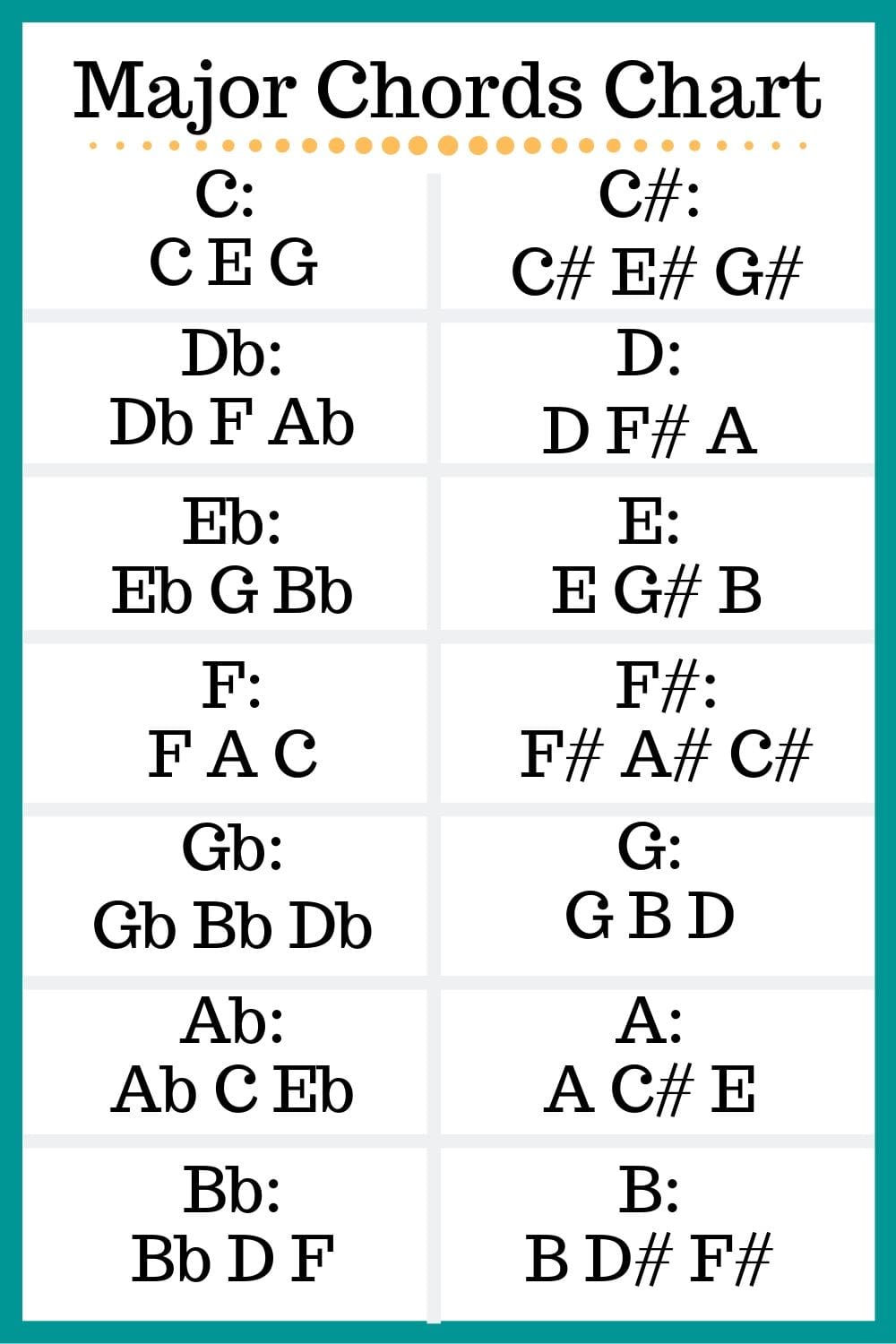 Chart of Major Chords
Chart of Major ChordsOriginal (but helpful) Major Chords Chart:
This is the original chart of the major chords I published here on Piano Lessons Info. It shows the chords in a slightly different way and you may find it useful.
| Chord | Notes | Picture |
| C | C E G |  |
| C# | C# E# G# |  |
| Db | Db F Ab |  |
| D | D F# A |  |
| Eb | Eb G Bb |  |
| E | E G# B |  |
| F | F A C | |
| F# | F# A# C# |  |
| Gb | Gb Bb Db |  |
| G | G B D |  |
| Ab | Ab C Eb |  |
| A | A C# E |  |
| B | B D# F# |  |
These major chords are the most common ones you’ll come across when playing a song. Learning and knowing these will get you a long way. To learn some more kinds of chords, go to minor chords or back to chord charts.
Learn Your Chords: Major Chord Quiz
We have created a little quiz or game for you to practice coming up with the notes in the different major chords.
They are not all in root position and will help you to work out which chords you remember the notes of and which ones you don't.
Check out the major chords quiz page here.
All the Major Chords on Piano Keys
You may also find it helpful, if you're learning piano and piano chords to see all of the chords on the keys themselves.
So here is the major chords chart on piano keys:
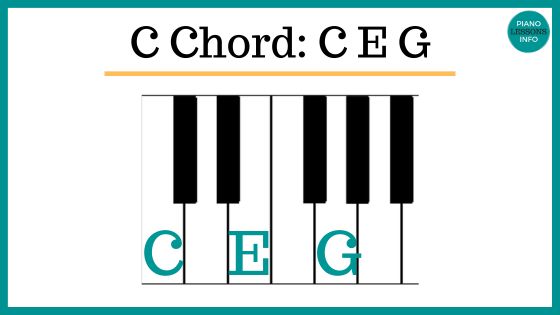 C chord on piano keys
C chord on piano keys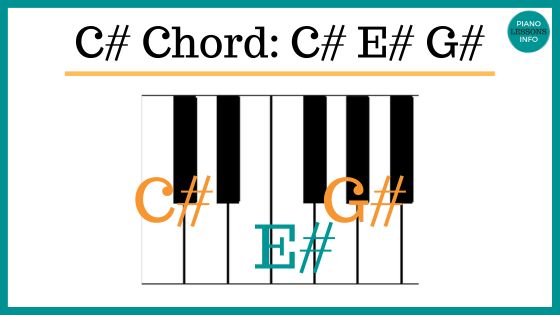 C sharp chord on piano keys
C sharp chord on piano keys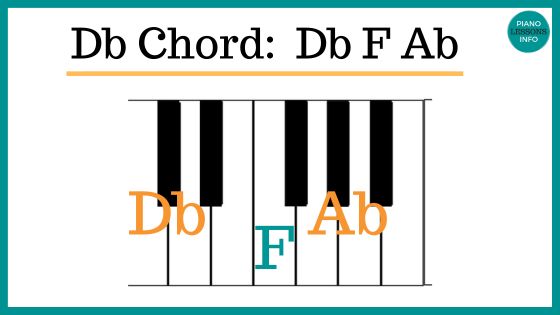 Db chord on piano keys
Db chord on piano keys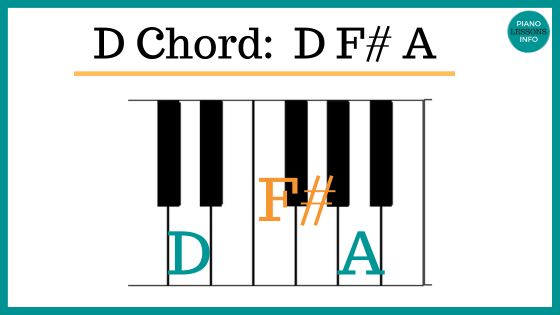 D chord on piano keys
D chord on piano keys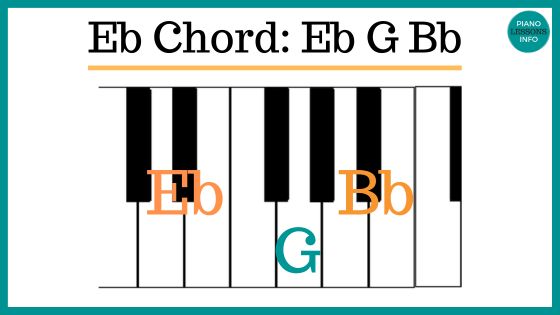 Eb chord on piano keys
Eb chord on piano keys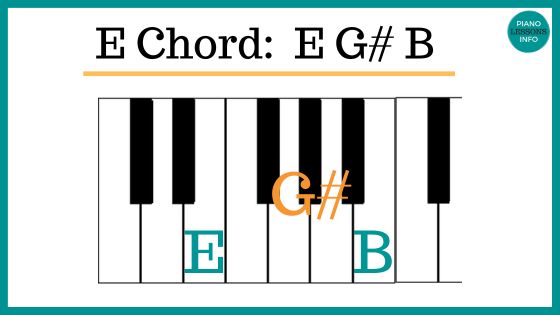 E chord on piano keys
E chord on piano keys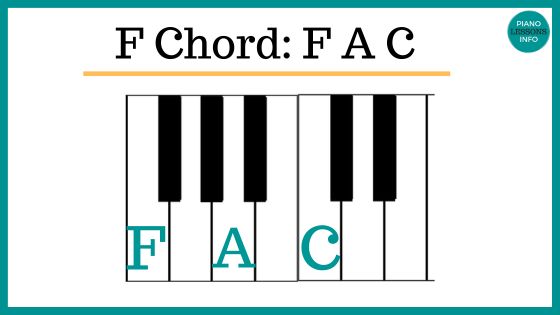 F chord on piano keys
F chord on piano keys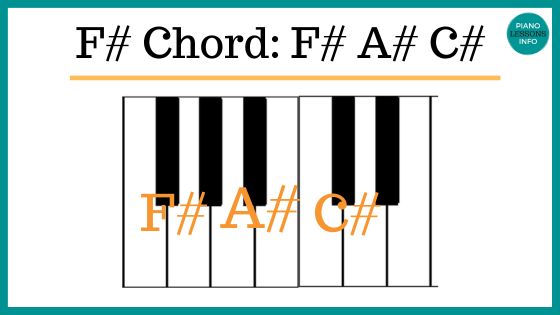 F# chord on piano keys
F# chord on piano keys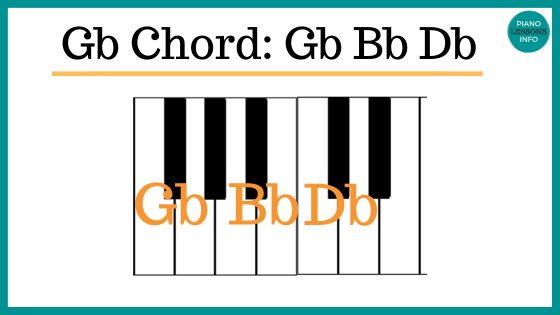 Gb chord on piano keys
Gb chord on piano keys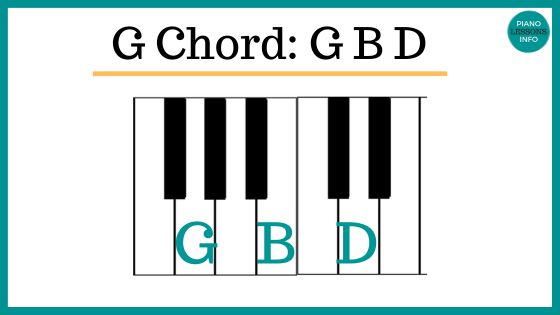 G chord on piano keys
G chord on piano keys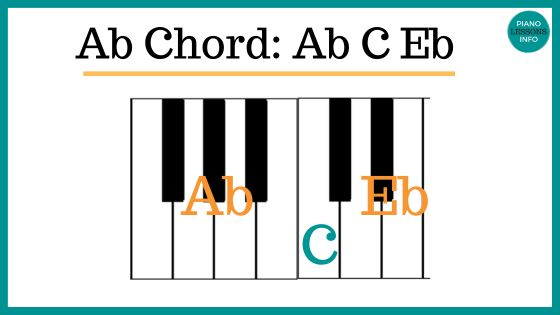 Ab chord on piano keys
Ab chord on piano keys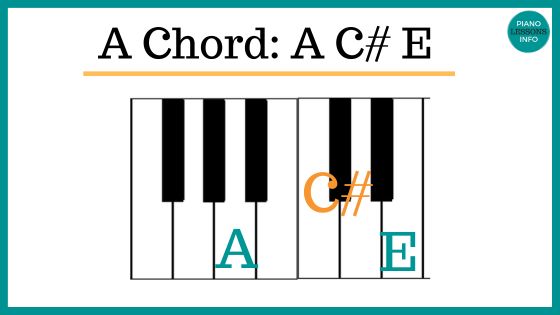 A chord on piano keys
A chord on piano keys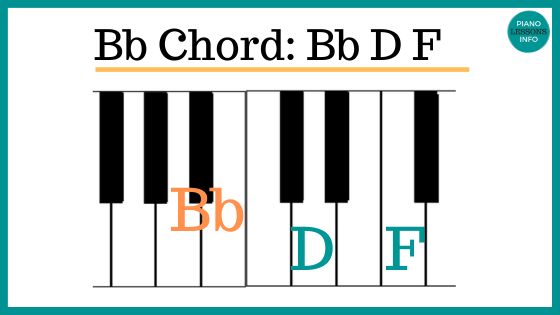 Bb chord on piano keys
Bb chord on piano keys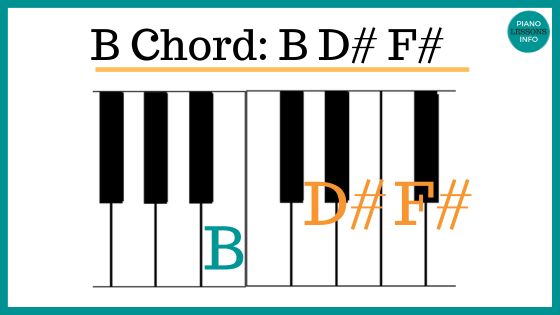 B chord on piano keys
B chord on piano keysFree Download:
Ultimate Chord Cheat Sheet
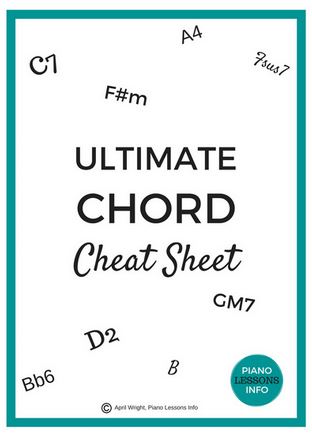
Subscribe below and get free access to the (printable) Ultimate Chord Cheat Sheet.
Major Chords FAQ
What is a major chord?
What is a major chord?
A major chord, also known as a major triad, is a three-note chord that consists of a root note, a major third above the root, and a perfect fifth above the root.
Another way to explain it is the first, third and fifth notes of the major scale.
How many major chords are there on the piano?
How many major chords are there on the piano?
There are 12 unique major chords on the piano, one for each note: C, C♯/D♭, D, D♯/E♭, E, F, F♯/G♭, G, G♯/A♭, A, A♯/B♭, and B.
Do major chords need to be played in their note order?
Do major chords need to be played in their note order?
No. It's helpful to learn chords in "root position". That's the position with the root note first and the other notes follow after.
But the great thing about chords is that you can play the notes anywhere on the piano, you just need to be using the notes of that chord.
After you learn chords in root position, it is helpful to learn them in inversions.
What are the first major chords I should learn?
What are the first major chords I should learn?
Start with chords that are played on all white notes. These are C, F and G.
You can learn more about the basic piano chords you need to learn first here.
Do I need to learn every major chord?
Do I need to learn every major chord?
Yes. Learning all the 12 major chords will give you a really good foundation and once you learn major chords, you can learn more chord patterns and adjust the chord you are playing to play additional chords.
Which fingers do I play major chords with?
Which fingers do I play major chords with?
Play major chords with your pinkie, middle finger and thumb in both the left hand and right hand to begin with. This is a very good finger position to start playing in.
Which hand do I play chords in?
Which hand do I play chords in?
This answer isn't so clear cut. I could say both.
Here are some options:
- chord in the left hand and melody in the right hand
- bass note in the left hand (root note) and chord in the right hand
- bass note in the left hand and chords and melody in the right hand (ultimate goal)
Do major chords always have to be played with three notes only?
Do major chords always have to be played with three notes only?
While the basic major chord is a "triad" with three notes, it can be "doubled up" with octaves or other notes from the chord to create a fuller sound. This means you can play multiple notes of the chord in various locations. It doesn't just need to be the 3 notes.
How do major chords relate to scales?
How do major chords relate to scales?
Major chords are derived from major scales. The first (root), third, and fifth notes of a major scale form the corresponding major chord.
What do I learn after I've learned all the 12 major chords?
What do I learn after I've learned all the 12 major chords?
Next, learn all the minor chords. Both major and minor chords are very important to learn and the ones you'll come across the most.
Return from 12 Major Chords to Piano Lessons Homepage.
Recent Articles
-
Piano Notes Chart
Nov 20, 23 10:21 PM
Find a piano notes chart for treble clef and bass clef notes as well as the different types of notes. -
D Chord on Piano + Diagram, How To & Theory
Oct 24, 23 12:20 AM
Learn how to play the D chord on piano with diagram, fingering, D/A, D/F# and a theory explainer. -
Diminished Piano Chords: Chart & How to Make Them
Oct 09, 23 09:23 PM
Learn the different diminished piano chords and how to make them. Here you'll find both a diminished chord chart and an explanation.
Free Download:
Ultimate Chord Cheat Sheet

Subscribe below and get free access to the (printable) Ultimate Chord Cheat Sheet.
- Home
- 14 Day Chord Challenge
- 12 Major Chords
